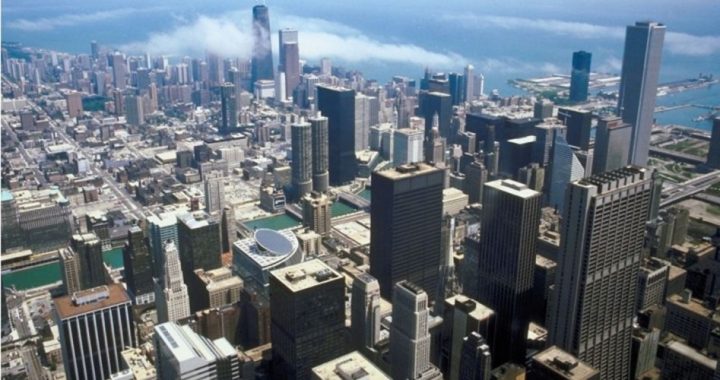
Going into Tuesday’s runoff election, Mayor Rahm Emanuel held nearly a 20-point advantage over his rival, Jesus “Chuy” Garcia, a hard-left progressive member of the Cook County Board of Commissioners. Four years ago Emanuel won in a walk, taking 55 percent of the vote. In February he couldn’t even manage a majority, with just 46 percent, forcing Tuesday’s runoff. As a North Side small business owner explained:
[In February] I cast an “anybody-but-Rahm” vote. Rahm is not a likeable guy. Sadly, he has no competition. Chuy is a nice guy but doesn’t seem to have a clue what he would do if elected.
When I go back for the final vote, I will vote for Rahm. Maybe he has a chance of fixing some of the [city’s] financial problems.
That’s hardly likely. In the past four years, Emanuel’s abrasive personality and his leftist worldview have added immensely to Chicago’s woes: Crime is up; debt is up, along with the interest on it; credit ratings have dropped three tiers, with another drop imminent; and the great divide between downtown and the South/West side of Chicago continues to expand.
Even when he tries to do the right thing, he is cut off at every turn. When he closed 49 under-performing public schools, the teachers’ union went out on strike. When the 12,000 students were transferred to better schools, fewer than one in five showed any academic improvement.
When he tried to raise property taxes, then-Governor Pat Quinn voted the plan down. When he tried to cut pension benefits for retirees, the unions revolted, taking the case to the state’s Supreme Court, where a decision is likely to be rendered against Emanuel.
When he installed red lights to catch speeders and raise revenues, he managed to infuriate the public.
The one escape plan he learned from his predecessor, Richard Daley, isn’t working anymore, either: “Scoop and Toss,” the financial strategy of using general obligation bonds (without voter knowledge or approval) to pay off short term obligations, rather than on capital projects that would have some chance of providing long-term benefits to the city’s citizens, is causing a financial bust. One wag likened the strategy to taking out a 30-year mortgage to buy a car, leaving the payments on it to the kids and grandkids.
Last year’s payments on those general obligation bonds ate up an astonishing 63 percent of all property taxes.
A review of how Daley and Emanuel spent some $10 billion of those bond proceeds by the Chicago Tribune revealed that less than a third was actually spent on capital improvements. The rest was spent on “short-term” operating expenses, expenses in refunding some of the city’s existing debt, equipment (such as Palm Pilots for city employees), judgments and other legal settlement costs, short-term bank loans payoffs, and retroactive paychecks.
He used tax breaks to draw businesses and jobs into Chicago’s bustling downtown while leaving the impoverished South and West sides, where job opportunities are desperately needed, bereft. In West Englewood, for instance, a third of the households are below the poverty level, while in Riverdale, more than 60 percent are below it. Unemployment runs between 25 and 35 percent in those neighborhoods and, with few holding even a high-school diploma, small business owners seeking computer-savvy employees are avoiding hiring in those areas.
The biggest problem facing Emanuel continues to be the city’s $20 billion under-funded pension plan, thanks partly to Daley’s inability or unwillingness even to make interest payments to it when the economy went south in 2007. Most private pension plans are required to hold 100 percent of future liabilities in investments, while plans such as Chicago’s are allowed some leeway, so the story goes, because shortages can always be made up by increasing taxes on citizens. The minimum benchmark for such plans is 80 percent. Chicago’s is 36 percent, and declining into what some are calling a death spiral: Benefit payouts are accelerating due to demographics — more and more city employees, dependent solely on their pension payouts during retirement — and low earnings, thanks to the Federal Reserve’s determined policy of forcing interest rates down.
Of the city’s $8 billion annual budget, more than $1 billion is required to fund the pension plan at minimum levels, and within five years that number will approach $2 billion.
Garcia, in his campaign against Emanuel, railed against the mayor for rising crime, the red lights, and shutting down the schools. He is supported by a gaggle of far-left personages including Jesse Jackson, Howard Dean, Vermont Senator Bernie Sanders, Gloria Steinem, and hard-left professor Cornel West. But he is being buried by Emanuel’s immense war chest of some $30 million thanks to contributions from those with similar worldviews numbering about 100 in all.
Emanuel’s campaign attacks Garcia for being a novice, inexperienced in political affairs, while Garcia is attacking Emanuel as “Mayor 1%,” a tool of wealthy liberals. When pressed for alternatives to what Emanuel has done over the last four years and what he would do differently, Garcia is remarkably vague. He wants to hire more police officers, and reopen some of those schools that Emanuel closed. He wants to remove the red lights. But he remains opaque as to how he would pay for it all.
One thing is certain: With another four years of either candidate, Chicago’s problems will only get worse. At the moment the only city in the country with lower financial ratings is Detroit. Chicago could easily win a race to the bottom, thanks to venal and feckless politicians such as Emanuel and wannabe saviors such as Garcia.
A graduate of an Ivy League school and a former investment advisor, Bob is a regular contributor to The New American magazine and blogs frequently at www.LightFromTheRight.com, primarily on economics and politics.



